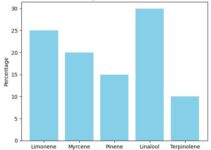Individuals with multiple sclerosis (MS) often struggle with the debilitating symptoms of the disease, such as pain, muscle spasticity, and nerve damage, leading some to explore the potential benefits of using Delta THC or cannabis for MS. Researchers are increasingly interested in the potential benefits of Delta 9 THC, a compound found in cannabis, for managing these symptoms.
Delta 9 THC, also known as Delta 9 tetrahydrocannabinol, has shown promise in reducing pain and inflammation associated with MS.
It may also improve muscle spasticity, allowing individuals to move more freely. Delta 9 THC, a form of tetrahydrocannabinol found in cannabis, has neuroprotective properties that can potentially slow down the progression of multiple sclerosis, making it a promising option for using THC for MS treatment.
Click here to learn more about: ‘ bloomz hemp store review
How Delta THC Affects MS Symptoms
While research is still ongoing regarding the impact of delta THC on symptoms of multiple sclerosis (MS), there is increasing interest in its potential benefits for MS pain relief and treatment. Delta THC is a compound found in cannabis that has shown promise in reducing muscle spasticity.
Muscle spasticity is a common symptom of MS and is characterized by involuntary muscle contractions and stiffness.
Delta THC may have analgesic properties that could provide relief from pain associated with MS.
Pain management is a significant issue for many patients with this condition. There is a possibility that delta THC possesses anti-inflammatory properties that could potentially help reduce inflammation in the central nervous system.
This reduction in inflammation could contribute to the management of MS symptoms. It is important to note that Delta THC dosage should be determined carefully to ensure effective MS pain relief and to mitigate any potential adverse Delta THC effects on MS symptoms and MS treatment.
Potential Benefits of THC for MS
While THC is being researched for its potential benefits in managing MS symptoms, studies are also investigating its impact on the side effects of Delta THC administration. Researchers are currently exploring the use of Delta THC as a therapy for MS, and clinical trials are underway to gather more data.
Before considering Delta THC as a treatment option for MS, it is crucial to have a clear understanding of its potential risks and benefits.
Continued research and studies will provide valuable insights into the effectiveness and safety of Delta THC therapy for patients with MS
| Benefits of Delta THC in managing MS symptoms | Impact of Delta THC on side effects |
|---|---|
| Research shows potential benefits in managing MS symptoms | Studies are investigating the impact of Delta THC on side effects |
| Clinical trials underway to gather more data | Clear understanding of potential risks and benefits is crucial |
| Continued research and studies will provide valuable insights | Effectiveness and safety of Delta THC therapy for MS patients |
Is Delta THC a Viable Treatment for MS
Delta THC, also known as delta-9-tetrahydrocannabinol, has gained significant attention as a natural remedy for individuals with multiple sclerosis (MS), harnessing its neuroprotective properties. Studies are still in their early stages, but they have shown promising results regarding the potential medical benefits of delta THC in managing MS symptoms.
As a cannabinoid compound found in cannabis plants, delta THC is renowned for its psychoactive effects.
It also possesses neuroprotective properties and potential therapeutic uses that could offer a holistic approach and natural remedy for individuals living with MS.
These properties include reducing inflammation, providing pain relief, and protecting nerve cells from damage, which may slow down the progression of the disease. As research and the ever-growing understanding of Delta THC medical benefits continue to expand, more people are turning to it as a natural remedy and holistic approach for alternative medicine.
Relief from Pain and Inflammation in MS
Living with multiple sclerosis (MS) can be incredibly challenging, as it often brings along pain and inflammation due to the Delta THC antiinflammatory properties, which can have a major impact on a person's quality of life. There are various ways to find relief from these symptoms and improve overall well-being.
One approach that has gained attention in recent years is the use of delta-9-tetrahydrocannabinol (THC), a compound found in cannabis plants.
THC has been found to have potential therapeutic effects, including pain relief and anti-inflammatory properties.
This natural alternative to traditional medications works by interacting with the body's endocannabinoid system to target pain, inflammation, and immune responses. Individuals with MS may find that THC can help with muscle relaxation, spasticity, and cognitive function.
THC for MS Relief
- THC has been shown to provide pain relief for individuals with multiple sclerosis.
- Research suggests that THC's anti-inflammatory properties can help reduce inflammation associated with MS.
- Studies have indicated that THC interacts with the body's endocannabinoid system to target and relieve muscle relaxation and spasticity in MS patients.
- THC may also have a positive impact on cognitive function in individuals with multiple sclerosis.
THCs Impact on Cognitive Function in MS
Some positive effects on sleep quality in MS patients, though further research is needed to fully understand the relationship between Delta THC sleep disturbances and pain management.
Side Effects and Risks of THC Use in MS
It is crucial to monitor liver health regularly when using Delta THC for MS, as it can impact the quality of life, disease progression, immune system, nervous system, neurodegeneration, and neuroinflammation; therefore, individuals should consult with their healthcare provider for guidance.
In addition to the potential respiratory and mental health risks, it is important to note that Delta THC use may also impair cognitive function and coordination.
This can pose additional challenges for individuals with MS, who may already experience difficulties in these areas.
Therefore, caution should be exercised when considering Delta THC as a treatment option for MS, and individuals should weigh the potential benefits against the potential risks.
It is worth mentioning that alternative forms of Delta THC administration, such as oral ingestion or topical applications, may be less likely to pose respiratory issues compared to smoking or vaping. These methods still carry potential risks and should be approached with caution
Delta THC and MS
- Delta THC can impact liver health, disease progression, immune system, nervous system, neurodegeneration, and neuroinflammation in individuals with MS.
- Regular monitoring of liver health is crucial when using Delta THC for MS.
- Delta THC use may impair cognitive function and coordination, posing challenges for individuals with MS who already experience difficulties in these areas.
- Alternative forms of Delta THC administration, such as oral ingestion or topical applications, may be less likely to pose respiratory issues compared to smoking or vaping.
Current Research on THC for MS
Current research on Delta THC for multiple sclerosis (MS) is uncovering new insights about its potential benefits and therapeutic effects for patients, including Delta THC neuroprotective effects and Delta THC treatment options. One area of focus is the impact of Delta THC neurogenesis and Delta THC neuroplasticity in individuals with MS.
Neurogenesis refers to the formation of new nerve cells, while neuroplasticity refers to the brain's ability to adapt and change.
Preliminary studies suggest that THC may promote neurogenesis and enhance neuroplasticity.
These findings could potentially help improve Delta THC neurologic symptoms and slow down disease progression in MS patients.
Researchers are also investigating the Delta THC neuroprotective effects of THC in MS. Neuroprotective effects of Delta THC offer promising treatment options for various neurologic symptoms.
Improving Quality of Life with Delta THC
Alternative therapies for individuals with multiple sclerosis (MS) are gaining recognition for their potential to enhance their quality of life, including Delta THC natural treatments and Delta THC lifestyle changes. In addition to conventional treatments like medication and physical therapy, incorporating lifestyle changes, dietary modifications, and exercise can contribute to improved well-being and overall health for individuals with MS.
Stress management techniques, including Delta THC, can also be helpful in alleviating anxiety and promoting mental well-being.
By exploring these alternative options, individuals with MS can find relief from the challenging symptoms of the disease and enhance their quality of life
Alternative Therapies for MS
- Alternative therapies like Delta THC natural treatments have been recognized for their potential to enhance the quality of life for individuals with MS.
- Incorporating lifestyle changes, dietary modifications, and exercise alongside conventional treatments can contribute to improved well-being and overall health for individuals with MS.
- Stress management techniques, including Delta THC, have shown to be helpful in alleviating anxiety and promoting mental well-being for individuals with MS.
- Exploring alternative options can provide relief from the challenging symptoms of MS and enhance the quality of life for those affected by the disease.
The Impact of Delta 9 THC for PTSD A Powerful Solution for Healing
Delta 9 THC A Powerful Solution for Epilepsy





